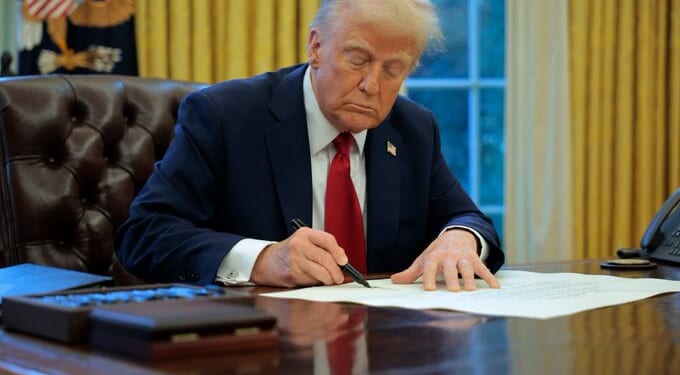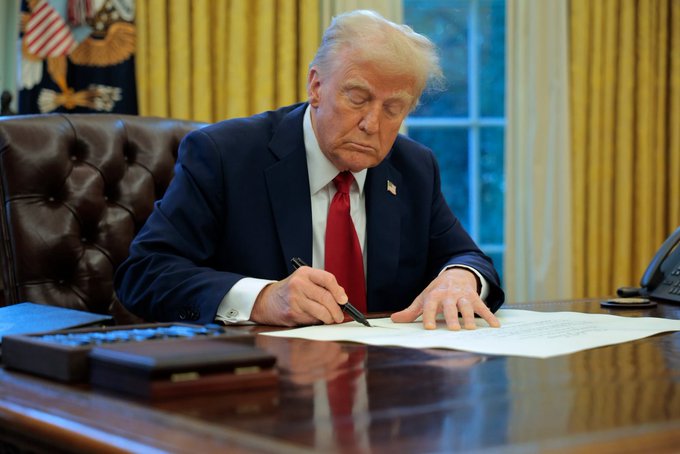President Donald Trump unveiled a plan yesterday to slash the costs of IVF and fertility treatments, fulfilling a campaign pledge to make it more accessible to American families eager to welcome new children into the world.
While more babies would normally sound like a good thing to pro-life Americans, two top pro-life advocates say it’s not good news because the IVF process includes killing babies at their earliest stages of life.
As LifeNews reported, the White House initiative, building on a February executive order directing federal agencies to recommend ways to protect IVF access and cut out-of-pocket expenses, aims to ignite a baby boom by easing financial barriers for couples battling infertility.
Click Like if you are pro-life to like the LifeNews Facebook page!
The Departments of Labor, Health and Human Services, and Treasury said they plan to propose new rules to provide “additional ways that certain fertility benefits may be offered as a limited excepted benefit” and are considering changes to how supplemental health plans qualify.”
But two pro-life advocates criticized the IVF expansion.
CatholicVote President Kelsey Reinhardt criticized Trump’s efforts to promote IVF, warning that IVF destroys human embryos, thus resulting in the death of innocent human lives. She also called on the administration to look into the growing fields of medicine that address the root causes of infertility without compromising on the dignity of unborn life.
“As Catholics who believe every human life begins at conception and deserves protection, we are deeply disappointed by the White House’s decision to promote IVF, a practice that routinely destroys or discards embryonic children in the name of ‘treatment,’” Reinhardt said immediately after the announcement. “The longing for a child is holy, but a child can never be the product of a laboratory process that treats life as disposable.”
“We urge President Trump to reconsider this approach” Reinhardt continued, “and instead fully commit to the far better path already hinted at in his policy: addressing the root causes of infertility. Restorative Reproductive Medicine (RRM) offers real, ethical care by diagnosing and healing the underlying conditions that prevent conception, rather than bypassing the body through an expensive, low-success, morally unacceptable procedure like IVF.”
“America should invest in medicine that heals, not in an industry that creates life only to discard it,” she said. “True compassion respects both the dignity of the parents and the lives of their unborn children, every single one of them.”
Also, Kristan Hawkins, president of Students for Life, called the announcement the “second disappointment in two weeks” from Trump – on the heels of the FDA approving the generic version of the abortion pill.
“While it could have been worse, it’s still a reflection that they aren’t totally on board,” Hawkins said. “I’m thankful there’s no new healthcare mandate forcing coverage for the destructive IVF industry, but IVF, as it’s practiced, still destroys countless humans in the embryonic stage.”
“It’s time to find real solutions that help families grow and flourish without killing Life in the process,” Hawkins added.
In March, Trump embraced the cause with enthusiasm, declaring himself the “fertilization president” while endorsing assisted reproductive services as a vital tool for growing families.
The forthcoming framework includes two key measures designed to foster more births.
First, it would enable employers to offer fertility coverage as an optional benefit, akin to vision or dental plans, allowing workers to opt in and receive support for treatments that could lead to the joy of parenthood. Second, the administration plans to strike a “most favored nation” drug pricing deal with a pharmaceutical company to dramatically lower the cost of hormone-stimulating medications essential to each IVF cycle.
This drug pricing strategy echoes a May executive order Trump signed to align U.S. prices with lower international rates, with recent agreements already reached with companies like Pfizer and AstraZeneca to reduce costs on other medications. By extending this approach to fertility drugs, the plan promises to make IVF viable for far more couples, potentially adding countless little ones to American homes.
The announcement underscores Trump’s pro-natalist vision, a cornerstone of his administration’s push to reverse declining birth rates and strengthen the nation’s future through larger, thriving families.
Yet the effort highlights ongoing pro-life concerns. Often more babies re made in the IVF process than a couple plans to birth and they are often left frozen, aborted or destroyed.
While many celebrate the potential for more lives brought into existence, pro-life advocates have urged “new guardrails” on IVF, citing ethical concerns over the creation and occasional discarding of surplus human embryos.
The February order, signed amid fanfare at Mar-a-Lago, set a 90-day deadline for cost-reduction proposals that lapsed without a comprehensive public rollout. Thursday’s disclosure marks a concrete step forward, though details remain under wraps until the official reveal.
With roughly one in four employers already providing some IVF coverage, the new employer-opt-in model could broaden access significantly, empowering businesses to support their workers’ dreams of building families.












